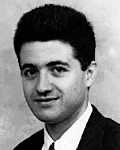Abstract:
Caches have been used extensively to store the most popular/recent requested data to improve the user latency and reduce the network load. Recently, a more systematic app...Show MoreMetadata
Abstract:
Caches have been used extensively to store the most popular/recent requested data to improve the user latency and reduce the network load. Recently, a more systematic approach to caching has been developed within the framework of content delivery networks (CDN). A CDN is the network of caches, where the caches are geographically distributed and serve user requests on behalf of the subscriber Web sites. Users receive the requested information from the caching servers, which are closer to the users and usually much less loaded than the origin server. The objective is to minimize the user latency by intelligently distributing the content and serving the user requests from the most efficient sites. We realistically model the agents in a CDN with selfish self-maximizing behaviors and define the problem as a noncooperative game. We separate the distribution and routing subproblems and use games to solve each. We show that the subproblems have equilibrium solutions and, if the equilibrium of a subproblem is unique, we achieve the global optimum for that subproblem. We also determine that a unique equilibrium is reached if the content providers are not willing to pay high amounts and the cache sizes are sufficiently small. We noticed that the global system optimum requires the content providers to pay very high amounts, which in practice may prohibit the applicability of the distributed method. Thus, we consider an Investment strategy for the content providers, which maximizes the publishers' net benefits and leads to a near-optimum system solution. We also show that the joint distribution and routing game has an equilibrium and demonstrate its performance by numerical examples.
Published in: IEEE Transactions on Computers ( Volume: 52, Issue: 12, December 2003)

Faculty of Engineering and Natural Sciences, Sabanci University, Istanbul, Turkey
Özgür Erçetin received the BS degree in electrical and electronics engineering from the Middle East Technical University, Ankara, Turkey, in 1995, and the MS and PhD degrees in electrical engineering from the University of Maryland College Park in 1998 and 2002, respectively. He worked as a research assistant at the University of Maryland and at HRL Laboratories, Malibu, California. He is currently working as an assistant...Show More
Özgür Erçetin received the BS degree in electrical and electronics engineering from the Middle East Technical University, Ankara, Turkey, in 1995, and the MS and PhD degrees in electrical engineering from the University of Maryland College Park in 1998 and 2002, respectively. He worked as a research assistant at the University of Maryland and at HRL Laboratories, Malibu, California. He is currently working as an assistant...View more

Institute for Systems Research, Department of Electrical and Computer Engineering, University of Maryland, College Park, MD, USA
Leandros Tassiulas received the Diploma in electrical engineering from the Aristotelian University of Thessaloniki, Thessaloniki, Greece, in 1987 and the MS and PhD degrees in electrical engineering from the University of Maryland, College Park in 1989 and 1991, respectively. From 1991 to 1995, he was an assistant professor in the Department of Electrical Engineering, Polytechnic University, Brooklyn, New York. In 1995, h...Show More
Leandros Tassiulas received the Diploma in electrical engineering from the Aristotelian University of Thessaloniki, Thessaloniki, Greece, in 1987 and the MS and PhD degrees in electrical engineering from the University of Maryland, College Park in 1989 and 1991, respectively. From 1991 to 1995, he was an assistant professor in the Department of Electrical Engineering, Polytechnic University, Brooklyn, New York. In 1995, h...View more

Faculty of Engineering and Natural Sciences, Sabanci University, Istanbul, Turkey
Özgür Erçetin received the BS degree in electrical and electronics engineering from the Middle East Technical University, Ankara, Turkey, in 1995, and the MS and PhD degrees in electrical engineering from the University of Maryland College Park in 1998 and 2002, respectively. He worked as a research assistant at the University of Maryland and at HRL Laboratories, Malibu, California. He is currently working as an assistant professor at Sabanci University, Turkey. His research interests lie in the general field of communication networks. Specifically, he is interested in network economics, satellite and terrestrial wireless networks, ad hoc networking, and control of stochastic systems. He received the Dr. Bulent Kerim Altay awards for academic excellence at Middle East Technical University and the Graduate School Fellowship from the University of Maryland. He is a member of the IEEE.
Özgür Erçetin received the BS degree in electrical and electronics engineering from the Middle East Technical University, Ankara, Turkey, in 1995, and the MS and PhD degrees in electrical engineering from the University of Maryland College Park in 1998 and 2002, respectively. He worked as a research assistant at the University of Maryland and at HRL Laboratories, Malibu, California. He is currently working as an assistant professor at Sabanci University, Turkey. His research interests lie in the general field of communication networks. Specifically, he is interested in network economics, satellite and terrestrial wireless networks, ad hoc networking, and control of stochastic systems. He received the Dr. Bulent Kerim Altay awards for academic excellence at Middle East Technical University and the Graduate School Fellowship from the University of Maryland. He is a member of the IEEE.View more

Institute for Systems Research, Department of Electrical and Computer Engineering, University of Maryland, College Park, MD, USA
Leandros Tassiulas received the Diploma in electrical engineering from the Aristotelian University of Thessaloniki, Thessaloniki, Greece, in 1987 and the MS and PhD degrees in electrical engineering from the University of Maryland, College Park in 1989 and 1991, respectively. From 1991 to 1995, he was an assistant professor in the Department of Electrical Engineering, Polytechnic University, Brooklyn, New York. In 1995, he joined the Department of Electrical Engineering, University of Maryland, College Park, where he is now an associate professor. He holds a joint appointment with the Institute for Systems Research and is a member of the Center for Satellite and Hybrid Communication Networks, established by NASA. His research interests are in the field of computer and communication networks with emphasis on wireless communications (terrestrial and satellite systems) and high-speed network architectures and management, in control and optimization of stochastic systems, and in parallel and distributed processing. He received a US National Science Foundation (NSF) Research Initiation Award in 1992, an NSF Faculty Early Career Development Award in 1995, and a US Office of Naval Research Young Investigator Award in 1997. He coauthored a paper that received the INFOCOM '94 best paper award. He is a member of the IEEE.
Leandros Tassiulas received the Diploma in electrical engineering from the Aristotelian University of Thessaloniki, Thessaloniki, Greece, in 1987 and the MS and PhD degrees in electrical engineering from the University of Maryland, College Park in 1989 and 1991, respectively. From 1991 to 1995, he was an assistant professor in the Department of Electrical Engineering, Polytechnic University, Brooklyn, New York. In 1995, he joined the Department of Electrical Engineering, University of Maryland, College Park, where he is now an associate professor. He holds a joint appointment with the Institute for Systems Research and is a member of the Center for Satellite and Hybrid Communication Networks, established by NASA. His research interests are in the field of computer and communication networks with emphasis on wireless communications (terrestrial and satellite systems) and high-speed network architectures and management, in control and optimization of stochastic systems, and in parallel and distributed processing. He received a US National Science Foundation (NSF) Research Initiation Award in 1992, an NSF Faculty Early Career Development Award in 1995, and a US Office of Naval Research Young Investigator Award in 1997. He coauthored a paper that received the INFOCOM '94 best paper award. He is a member of the IEEE.View more

